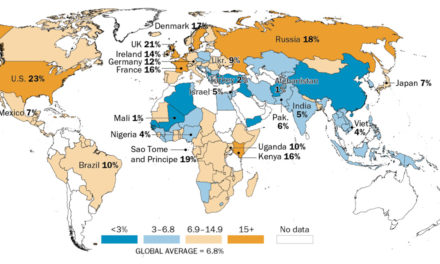Social media may be a great place to find a stirring sermon to challenge us, or a comedic presentation to lift our spirits. But for our kids, social media has become an angst-filled place of increasing social pressure and bullying, resulting in depression and suicidal thoughts. And if that’s not bad enough, the online world is fraught with predators of all types seeking to take advantage of our kids.
One scholar who has looked at the subject is Dr. Yuval Levin, the director of Social, Cultural and Constitution Studies at the American Enterprise Institute (AEI). In an opinion essay for The New York Times recently, Dr. Levin suggests a possible solution to the danger that social media poses for our children.
Raise the age requirement to obtain a social media account to 18, Levin suggests. “It was a mistake to let kids and teens onto the platforms in the first place. But we are not powerless to correct that mistake,” he added.
The current age requirement is 13. You may be surprised to learn there is any age requirement at all, but it was set by a federal law known as the Children’s Online Privacy Protection Act (COPPA), passed by Congress in 1998. That law prohibits American companies from collecting personal information from children under 13 without parental consent.
And since social media operates by collecting personal information and selling it to advertisers, platforms like Facebook (now Meta), Instagram, Tik Tok and others, they technically have to restrict their platforms to users 13 and older. In practice, though, they typically allow their users to self-certify that they meet the age requirement.
And, of course, that’s not a realistic barrier at all to the 10-year-old who has access to the internet and wants to participate. Levin points to a recent survey showing that almost 40% of American children ages 8 to 12 use social media.
Of course, parents already have options for protecting their children from the harms of social media, whether through limiting screen time or prohibiting it altogether.
Levin suggests there’s also a public policy approach that can assist parents: Increase COPPA’s age limit to 18, and most importantly, make the age requirement verifiable from a trusted third-party source like the Social Security Administration. No more “self-certifying.”
How would that work?
Levin points to the work of Chris Griswold, a policy analyst with National Affairs, who has also written about the dangers of social media.
“Administratively, the government is best suited to provide verification of the information it creates and maintains — such as the birth dates public entities certify and the Social Security numbers they issue,” Griswold writes. “Public services already put this information to widely accepted, non-controversial use — as with the federal E-Verify system, or the Social Security Administration’s (SSA) number-verification service, which employers routinely use to confirm that new hires have a valid identity.
“It would not constitute an engineering marvel to create a simple public system that allows Americans to use these data to anonymously prove whether they exceed a given age.”
Online protection for our children turns out to be one of those issues that prompts bipartisan efforts in Congress. But recent attempts to amend COPPA, such as 2021’s S. 1628, “Children and Teens’ Online Privacy Protection Act,” co-sponsored by Sen. Edward Markey, D-Mass., and Sen. Bill Cassidy, R-La., as well as S.3663, the “Kids Online Safety Act,” sponsored by Sen. Richard Blumenthal, D-Conn., and Sen. Marsha Blackburn, R-Tenn., have failed to gain much traction.
Nevertheless, Levin is optimistic. “Empowering parents is really the key to this approach.”
Parents, what do you think? Good idea, bad idea? Better alternative? At the very least Levin’s article shows how conservatives who are concerned about the family are thinking creatively and intelligently about how to solve the problem.
Related:
Focus on the Family
Teens Using Media: Why Social Media Shouldn’t Define Your Teen
Do Your Kids Have Healthy Phone Habits?
Helping Kids Process Violence in the News and Social Media
Cultivating Wise Tech Habits in Your Teen (broadcast)
Daily Citizen
‘The Dirty Dozen List’ – Corporations Enable and Profit from Sexual Exploitation
Canopy – New Parental Control App Protects Children from Nudity and Pornography
Plugged In Parent’s Guide to Today’s Technology
Sexting Isn’t Going Away. Here are Five Ways to Talk to Your Kids about It.
Photo from Shutterstock.






